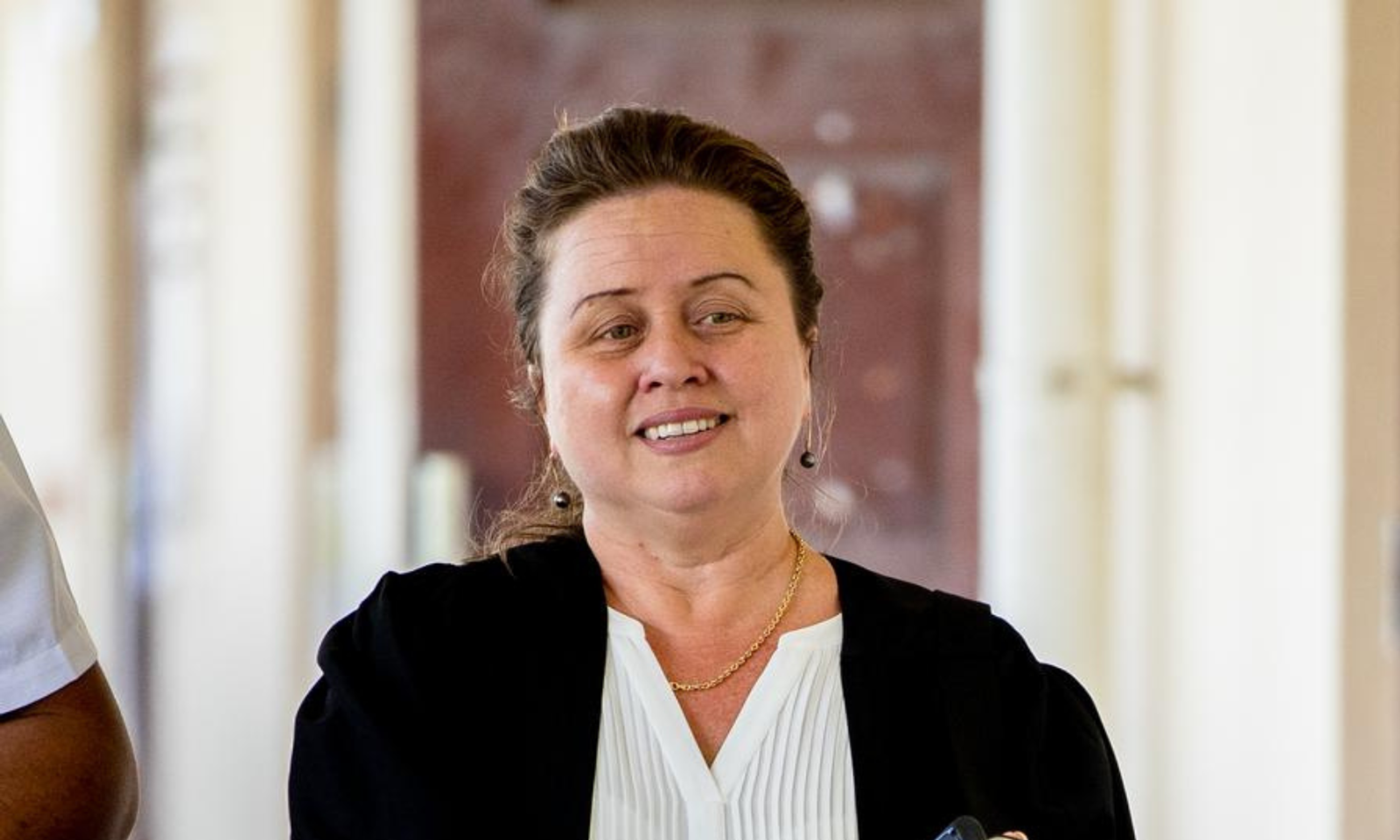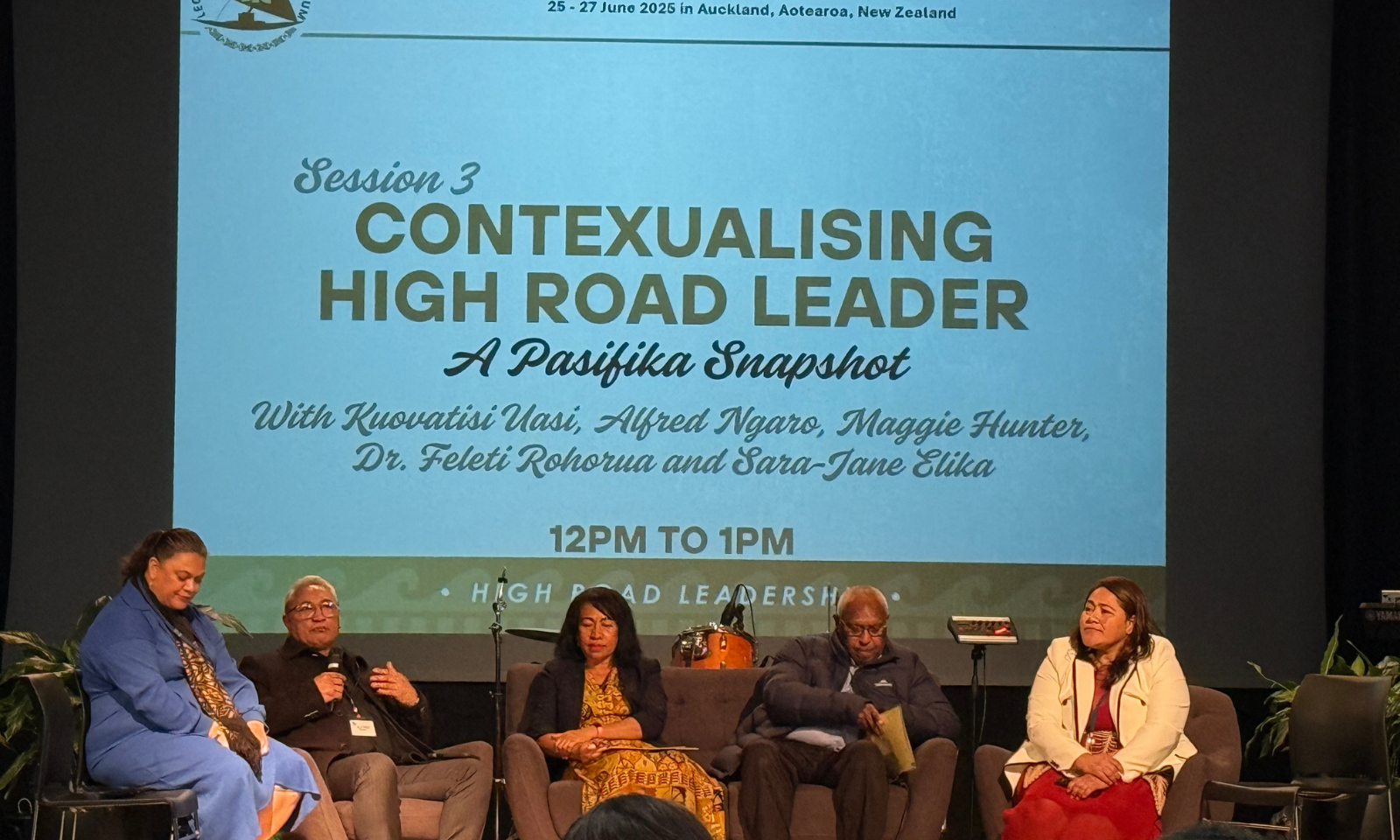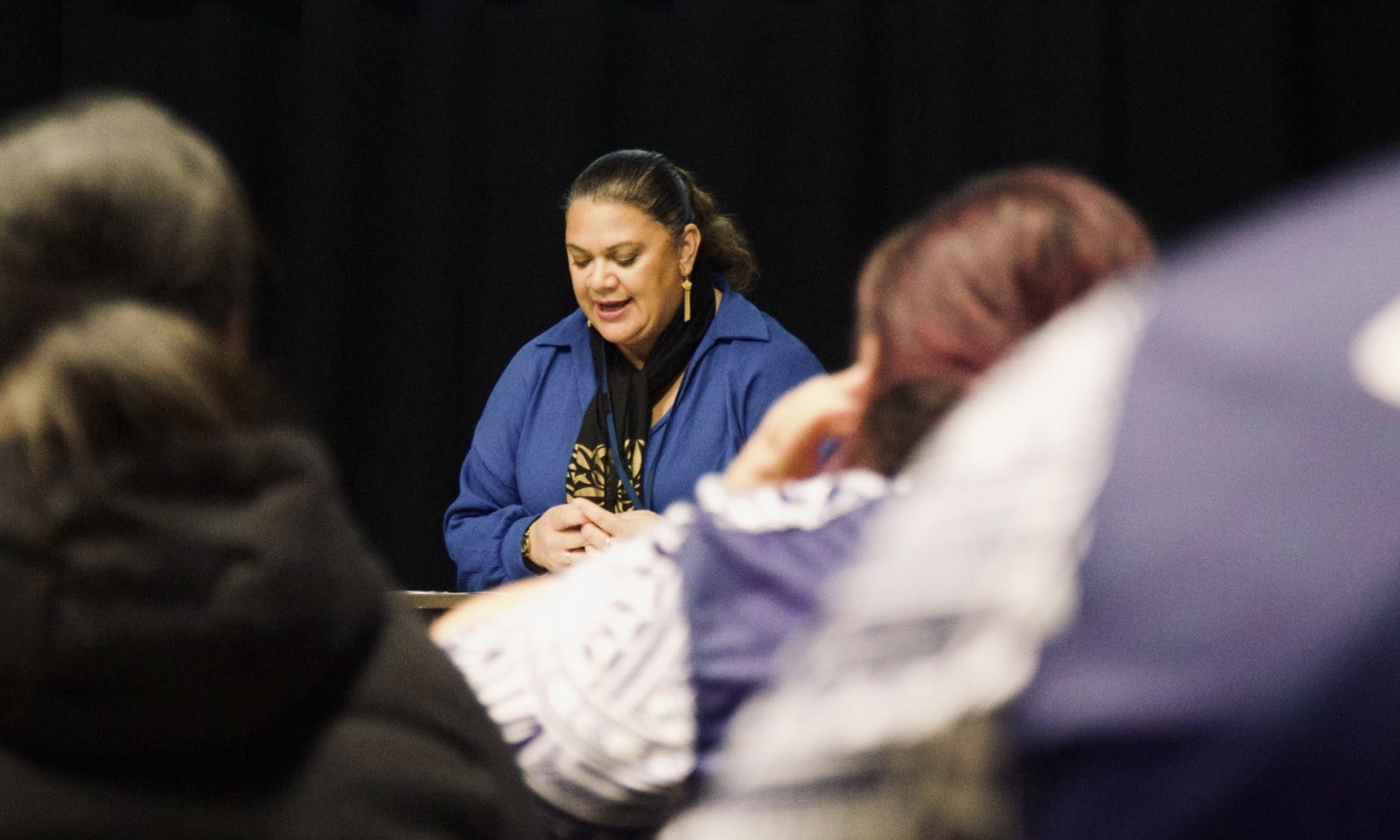

Hosted annually, the Legacy Leadership Symposium gathered Pacific leaders from across the region in Auckland.
Photo/Facebook/Legacy Leadership Symposium
Legacy Leadership Symposium brings together Pacific voices
The symposium aims to empower Pacific leaders through values-based leadership, cross-regional networking, and cultural practices.


Pacific leaders demand respectful involvement in memorial service for unmarked graves


Solomon Islands and Sāmoa make history at the OFC Nations Cup

Fiji seeking to empower e-passport holders with SmartGate access in NZ

Pacific leaders demand respectful involvement in memorial service for unmarked graves


Solomon Islands and Sāmoa make history at the OFC Nations Cup
A former National MP says it’s important to involve Pacific voices in key governance decisions and the formation of policy questions.
Speaking at this week’s Legacy Leadership Symposium in Auckland, Cook Islander Alfred Ngaro says there is a need to reimagine the narrative around determining the needs of vulnerable communities, highlighting the importance of involving Pasifika as custodians.
“Whoever holds the pen, paints the picture,” referring to the need for Pacific representation in policy formation.
“I challenge people who write these statements, who present them, I say to them, well, who held the pen? Was it you? Or was it our own people?
“That's why I [said] whoever holds the pen paints the picture.”
Leaders from across the Pacific gathered in Auckland to discuss empowerment and opportunities for leadership growth across the wider region.
Held annually across the Pacific, the symposium seeks to develop Pacific leaders’ potential and expand networking opportunities.
The symposium featured a high-impact panel with esteemed leaders from government, business, and community sectors.
The panel included Sarah Jane Elika of Elika Consulting Group, Ngaro, and Dr Feleti Rohorua, a Solomon Islands’ public servant and academic.
Each panellist shared insights from their experiences, ranging from emerging to established leadership, providing valuable perspectives to attendees.

From left, Sarah Jane Elika, Alfred Ngaro, Maggie Hunter, Dr Feleti Rohorua and Kuovatisi Uasi. Photo/PMN/Andre Fa'aoso
The symposium, which resulted from a partnership between five Pacific-based leadership practitioners, represented agencies and organisations across the Pacific.
Ngaro says the networking has already played a major role in the symposium, especially with the diverse voices from throughout the Pacific region.
“I think a point of difference with this [symposium] is that it's not domestic in the sense of Pasifika people here. Actually, the majority of them are Pasifika people who've come from throughout what we call Te Moana Nui a Kiwa,” he says.
Elika led a session on Indigenous leadership, exploring various forms of leadership and how they can guide Pacific leaders through challenges.
She says young Pacific leaders, irrespective of faith or profession, should remain rooted in their values and community, which she identifies as a crucial guide in her role as an entrepreneur.
“Everybody connects to values in different ways, and that's shaped through personal experience, through family experience, through community experience. Your cultural values also play a big part in who you are and how you're connected to your family and your culture,” she says.
Rohorua, who worked in Tonga and Fiji, reinforced the importance of family and community in leadership, irrespective of one’s position.

Sarah Jane Elika leading a session on Indigenous leadership. Photo/Supplied
“The importance of the family is such that if you take on the leadership role and responsibility, you still maintain that sense of commitment and obligation.
“Whether you're in government, in church, in business, in entertainment, in sports, you have a responsibility, an obligation.
“Leadership doesn't happen in a vacuum. Without followers, there's no leader.”
The Legacy Leadership Symposium ends on Friday.